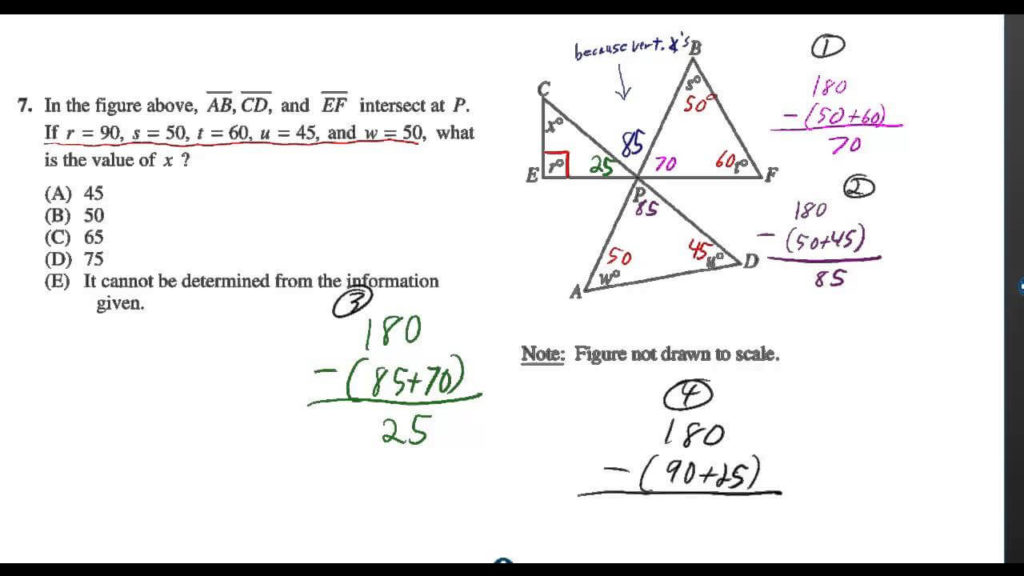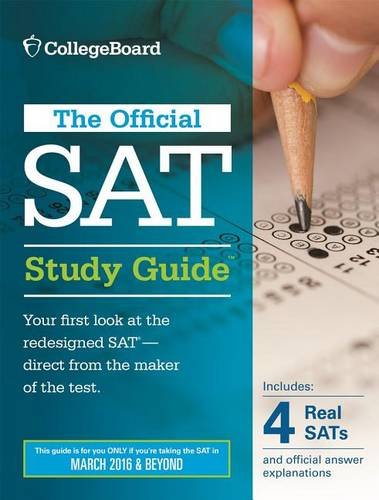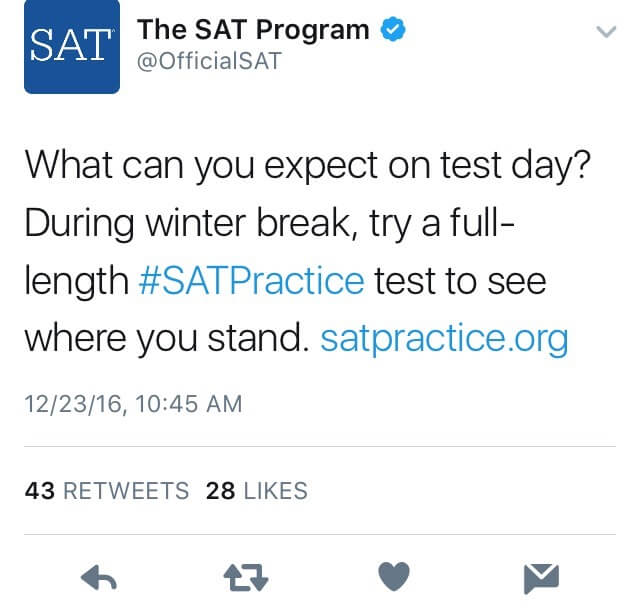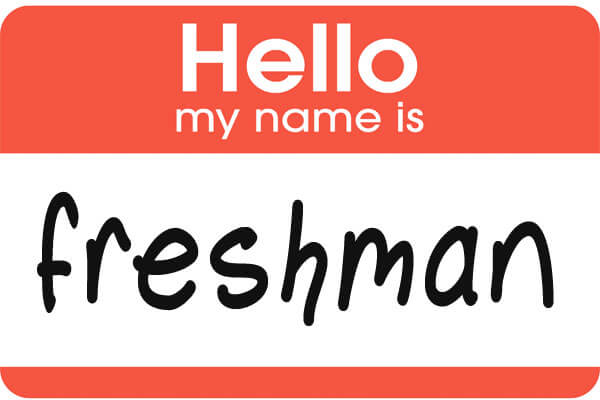Seeing a friend run out of the room crying about their low SAT scores freaks everyone out, and those nervous butterflies you feel on test day can really be a problem if you’re not prepared. Don’t let horror stories of panic attacks and below average scores make you scared. Doing well is all about preparing yourself and having confidence. Almost everyone your age takes the SAT, so your score needs to be strong if you really want to stand out and get accepted into your dream university.
What is it?

The SAT is the standardized test that high school students all over the country take. Along with GPA and extracurriculars, SAT scores play a big role in determining college admission. You can take the SAT any time during high school, but most students take the exam during their junior or senior year. You record your answers on a Scantron-like booklet and are scored on a scale of 400-1600. Once you receive your scores, you send them out to colleges that you’re applying to. High SAT scores look great to admission committees and determine college scholarships, so this is one test you don’t want to wing.
Do I have to take it?
Taking the SAT isn’t necessarily required, so you should look into the schools you’re applying to and see what the admission standard is. Some schools may prefer ACT over SAT scores while others don’t have a preference. Public universities and schools in the Midwest tend to prefer ACT scores from their applicants while private colleges and schools on the east and west coast would rather see SAT scores. You’ll have to submit one or the other, so check what your dream school is looking for. If no specific test scores are required, you might as well take both exams and submit the higher score.
The difference between the SAT and ACT?
The SAT varies from the ACT in several ways. For starters, the ACT has a designated test for science skills that isn’t on the SAT. So if you struggled in your ninth grade biology class, you might want to opt for taking SAT. The SAT focuses on real-world situations that you might encounter in college or the workplace, while the questions on the ACT will be more straight forward and basic. The SAT questions also get harder as you go through the test. With the ACT, the difficulty of the questions is completely random. But one of the major differences is that the SAT is scored on a scale of 1600 while the ACT is scored on a scale of 36.
How should I prepare?
Just like with other tests you’ve taken, the more you prepare, the better you do. The SAT is a little different in the sense that your teachers can’t just give you a one-page study guide with all the information you need to know. Some schools offer SAT prep classes, but they can get pretty pricey. The best way to prepare is to take practice tests. You can purchase books that have practice exams and information that can help guide your studying. There are lists of common SAT vocab words all over the internet, too. But you can’t expect to know every word in the dictionary. Familiarize yourself with prefixes, suffixes and root words to help you break down any word you come across.
And while the essay is now an optional part of the SAT, it’s crucial that you check to see if your dream schools still want you to submit your essay scores. If you find out that writing the essay isn’t actually optional for your specific school, writing practice essays based off of old prompts will get you ready for the essay on the actual day.
What should I expect the day of?

Whether you’re taking the test in your high school cafeteria or driving to another location, the SAT can cause some students high anxiety. So make sure you’re on time, or really 15 minutes early, to allow yourself time to relax. The person administering will want to make sure you’re not cheating, so don’t be alarmed by their stern, Mr.-Rooney-hunting-down-Ferris-Bueller attitude. The testing administrator will read their script explaining the rules, and you should actually listen instead of zoning out. Keep an eye on the clock too. Get as much done as you can without rushing through, and fill in the bubbles as you go. Just don’t waste too much time on questions you don’t know. You don’t want to run out of time and not have a chance to actually record your answers you know you’ll get points for.
What’s on the reading test?
The good news: all the questions are multiple choice. The bad news: you’re going to spend a lot of time reading passages–five to be exact. But don’t waste half of your time just reading the passages without answering any questions. Skim through each passage once to get the general idea and make quick notes on the side–the main idea, key setting details and outstanding vocabulary. Then go through the questions and find the relevant part of the passage those notes. You’ll be asked anything from main idea questions to interpreting details within passages. If you can’t figure out an answer, skip the question and come back later. Again, with five passages to read (and questions and answers), you want to give yourself time to read through all of them carefully. The more questions you answer right, the higher your score will be. Don’t waste your time reading through the whole passage three times because you couldn’t find some tiny detail, move on to the next passage.
What’s on the writing and language test?
The writing and language test is about testing your ability to read and edit passages. Questions about sentence structure, comma usage and even interpretations of charts will be on the test. You’ll be asked to choose better words or even give the definition of a word in a sentence. The writing language portion tests your ability to decide on how to improve sentences and passages. Know the different usages of apostrophes and be able to tell the difference between “there”, “their” and “they’re.” You’ll also be asked about defining certain words in different contexts, so go ahead and check out those SAT vocab words in the study guides.
What’s the essay about?
Like the rest of the SAT, the essay tests your real-world skills. You’ll be given a passage to read, and then you’ll be asked to write an essay about how the author uses evidence to support claims in the passage. The idea is to show your ability to write clearly and effectively just like you would on a college writing assignment. Your analysis shouldn’t involve your opinion on the author’s claims, but instead you should focus on how the author gets their point of view across. You’ll be graded on your reading, writing and analysis skills that you show in your essay. The directions will be clear, but the best way to be ready for the essay is to read sample prompts ahead of time and practice writing some essays.
What’s on the math test?

The math portion of the SAT tests your ability to apply math skills to real-world situations. The test focuses on three topics: Heart of Algebra, Passport to Advanced Math and Problem Solving and Data Analysis. I know, all that math sounds intimidating, especially those to those who circle ‘X’ when asked to find it. But practice problems to get the hang of them because all the questions are essentially the same–the numbers and names of people buying over 100 oranges change.
You can use a calculator (don’t forget extra batteries) and most of the questions are multiple choice. You’ll need to be familiar with linear equation, some geometry and even trigonometry. You also need to revisit that list of formulas you probably have somewhere and memorize the basics. Some problems require multiple steps, so take your time to make sure you don’t make any mistakes. Don’t just sit there staring at the same problem for 15 minutes straight. I promise your deathly stares won’t make the answer reveal itself.
What happens when I get my scores back?
Get ready for the longest three weeks of your life. You might feel like you’re waiting forever, but be patient. If you know you didn’t do well or aren’t satisfied with your score, you’re not totally screwed. You can retake the test as many times as you’d like. Read your score sheet carefully and determine which areas you need to improve the most so you don’t waste precious study time reviewing what you’ve already mastered. Now that you know which sections you rock at and which you might not, now is the time to really buckle down.
Top 3 helpful prep materials and websites:
The CollegeBoard website is your go-to for prepping for the SAT. You can register for the SAT and it’s the website you use to send your scores to the schools you’re applying to, so you’ll need to create an account. The website also has links to other articles about preparing for the SAT, how to interpret your scores and tips for test registration. On the CollegeBoard website you’ll be able to read more about what kinds of questions to expect on the exam while also having access to practice test questions and essay prompts. CollegeBoard has everything you need to familiarize yourself with the SAT before you take it.
2. The Official SAT Study Guide

The SAT was recently redesigned to focus more on the math and reading that students encounter in college and the workplace, so it’s important to get the most updated CollegeBoard study guide. CollegeBorad’s new SAT guide book contains more test-taking strategies that teach students how the SAT is different from previous years. There’s no need to be overwhelmed by the 700-page book and four practice tests because it’s everything you need to succeed. Don’t forget to time yourself during the practice exams so you know how to pace yourself on test day.
SAT for Dummies is written in a friendly style that’s easy to read and won’t intimidate you like some other guide books–although they did just straight up call you dumb… In addition to the different test questions and formats, SAT for Dummies offers full explanations to the practice tests so you can do more than take practice tests; you can understand why the answers are right so you know how to ace the test when the day comes.
Top 3 Twitter accounts:
1. @OfficialSAT

The SAT Program obviously tweets everything SAT related. They tweet dates, registration deadlines and how to prepare for the SAT on a daily basis. Can you say helpful?

TheElite Prep account helps students prepare not just for the SAT, but the PSAT and ACT too. Elite Prep tweets out SAT vocab words and definitions so you can get some practice in while scrolling down your timeline wasting time.
3. @Prep_Expert

The Prep Expert SAT Prep account doesn’t just tweet tips for preparing for the SAT. If you follow the account, you’ll also get the chance to win special deals for prep courses and other articles about the SAT.
Helpful Articles
Dress Well, Test Well

7 Tips to master before you start college




















